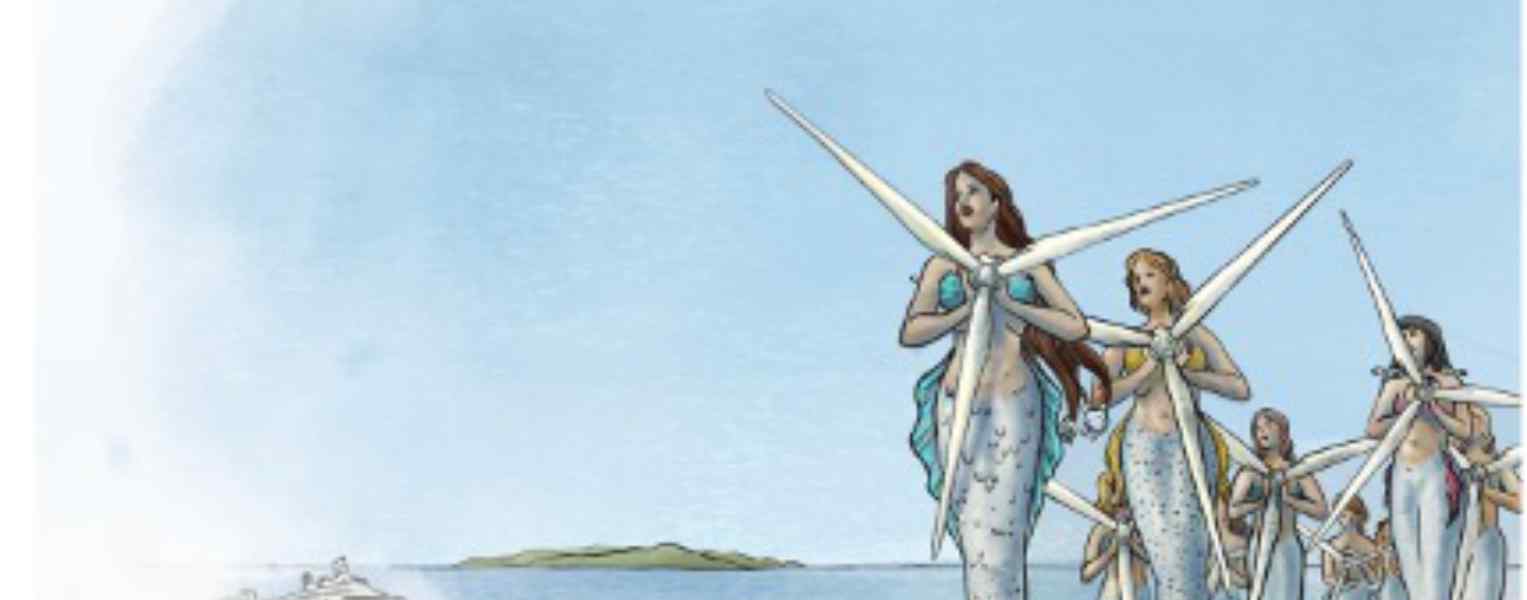
Fairy tale characters – mermaids, vampires, and witches – have been used as metaphors in research involving the University of Strathclyde, to communicate sustainability research.
The team members, including Dr Katherine Ellsworth-Krebs (University of Strathclyde), Dr Carolynne Lord (Lancaster University), and Dr Torik Holmes (University of Manchester), have been developing accessible and creative means of promoting energy research for policymakers and the wider public, in evocative and engaging terms.
Responding to climate change challenges, such as electricity generation, low-carbon transport and plastic pollution, the research team presents three ‘telling tales’. These ‘translate’ existing academic research, taking inspiration from well-known fairy tale characters, to cast this research in an accessible and powerful light:
- Renewables as mermaids – alluring and attractive solutions for policymakers to increasing energy demands, but a distraction from other important routes to Net Zero, like demand reduction. Like mermaid figureheads on sailors’ ships, renewables should accompany our transition to Net Zero but should not be the only destination.
- Cars as vampires – dangerous entities that are deadly and sucking the wellbeing from communities by dividing workplaces and retailing outlets from homes, creating lengthy commutes. Policymakers have, until now, ‘waved garlic’ at them, to control how fast and where they travel, rather than ‘reaching for the stake’ and re-imagining everyday lives without cars.
- Plastics as witches – a complex character that is, says the research team, misunderstood by the current witch-hunt against plastics. Although they can be harmers, such as single-use plastics, they also have ‘healing’ properties, such as cleanliness and durability. Policymakers should work towards systems of re-use to maximise their benefits, rather than simply ‘demonising’ plastics in general.
The team, led by Lancaster University and also involving the University of Manchester, worked with illustrator Véronique Heijnsbroek to create a range of inspiring images. The study has been published in the journal Energy Research & Social Science.
Dr Ellsworth-Krebs, a Chancellor’s Fellow in Strathclyde’s Department of Design, Manufacturing and Engineering Management, said: “Communicating in new and intelligible ways that combine the complexity of research with inspiring stories is important. There is now a real urgency in which transformative responses to climate change are required.
“Though much social science work offers potential solutions, it can do so in a way that is hard to understand by those who have the power to make change a reality.”
The research responds to the Intergovernmental Panel on Climate Change’s (IPCC) call for ‘transformational adaptation’. The paper offers serious messages and alternative policy approaches, with the aim of accessibly communicating the types of shifts that this will involve.
The researchers believe that renewables, although important, are not the only measure required for a future of fossil-free electricity generation. Demand reduction isa less attractive solution but it must be considered to ensure this future is possible.
Cars are known to be deadly and dangerous, yet daily life and society have been designed around their use. According to the researchers, more stringent measures are required when thinking of what role cars should play in future societies.
The researchers believe plastics are not to blame so much as the systems of production, consumption, and disposal they are tied up with. Reuse policies are crucial.
The research authors plan to hold an online workshop, starting on Monday 28 August, with other researchers and illustrators to develop and extend this cast of characters.